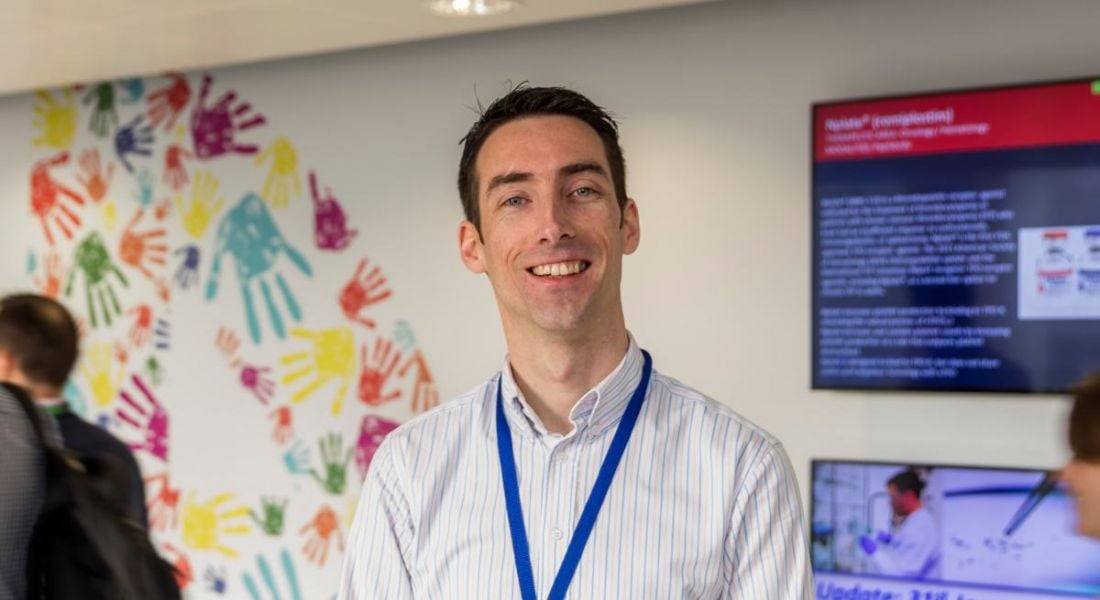Tony Ryan is incredibly grateful to Amgen for the support the company has given him over the years. However, he is quick to stress that the only person who can jump-start your career is you.
Everybody in the working world has their own advice about how to make it in your desired field. Networking, doing internships, upskilling in one’s spare time and mastering public speaking are all frequently suggested.
However, the key point is that it comes down to your own initiative. Tony Ryan, a principal engineer at Amgen, argues that at the very heart of it, the only person who can ensure your success is you.
We spoke to Ryan about what inspired his interest in life sciences and what has determined his success in this career area.
What first stirred your interest in a career in life sciences?
I had a fantastic maths and chemistry teacher who was passionate about those subjects and passed that on to me. That led me to choose chemical engineering at college, which opened up the world of biopharmaceuticals to me. It’s a very rewarding industry where every day you’re at the heart of making vital medicines for patients that need them.
What education and/or other jobs led you to the role you now have?
I studied chemical engineering at UCD and my first job out of college was with GlaxoSmithKline on their graduate programme. It was a great start to my working life. We were rotated every 12 months to different parts of the business such as active pharmaceutical ingredient manufacturing, formulation/tablet manufacturing and their fast-moving consumer goods business. This gave me a great foundation for my future career path.
What were the biggest surprises or challenges you encountered on your career path and how did you deal with them?
One of the biggest perceived challenges people often ask me about is how to make the ‘jump’ from an individual contributor to a people manager. I don’t think there’s any one answer to this. Like a lot of things in your career, my advice would be to focus on doing your current job to the best of your ability rather than always looking for your next move.
Was there any one person who was particularly influential as your career developed?
I’ve had many excellent managers and mentors helping me throughout my career to date. I would encourage anyone looking to get a broader picture of the organisation they work in to reach out for a mentor to discuss their career aspirations, and seek advice and mentorship from someone other than their boss.
What do you enjoy about your job?
My current role is leading a team of process development engineers and scientists. Every day, we use science to make data-driven decisions on the best path forward. For those passionate about real-world applications of the principles learned in college, there are fantastic opportunities in the pharmaceutical industry.
What aspects of your personality do you feel make you suited to this job?
I think being comfortable not knowing everything is important, as I rely heavily on my team for expertise and support that we provide to our customers. That said, it’s important to be open to constantly learning on the job.
Knowing where to find the right information is also a key skill. I think having a healthy sense of urgency and attention to detail is also important to ensure that you meet your goals and your team’s goals right the first time.
How did Amgen support you on your career path, if at all?
Amgen has been an excellent support to me to date. They’ve given me increasing responsibility since I joined, provided training courses on various topics including lean leadership, and have given me the opportunity to meet senior leaders in the organisation.
However, it’s important to point out that your career is wholly your own responsibility, so I would encourage everyone to take charge of it and not sit back and hope that your employer will develop you.
What advice would you give to those considering a career in life sciences, or just starting out in one?
Having a sound scientific grounding by undertaking a degree in science or engineering is an important start. I would then encourage students to seek out student placements in the industry to give them a flavour of what to expect in their future career.
For those starting out, I would encourage people to make sure they like or even love what they do. There is plenty of time in our careers to make different moves, so don’t be afraid to make a move to ensure you’re the right fit for the job you’re in.




